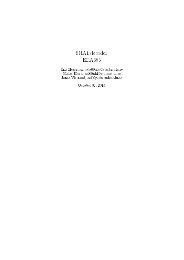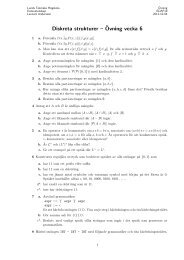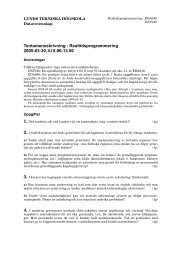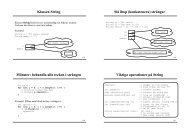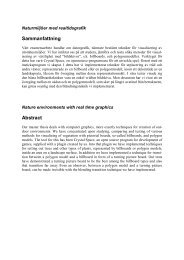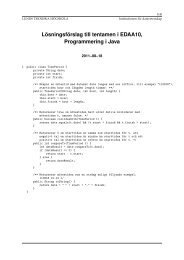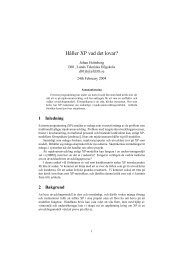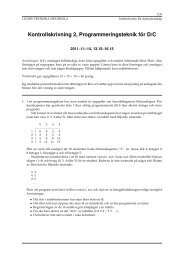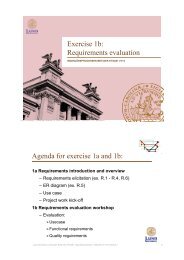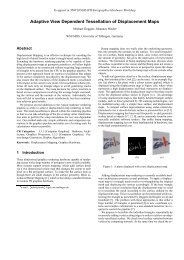Threads in the new ISO C Standard from 2011
Threads in the new ISO C Standard from 2011
Threads in the new ISO C Standard from 2011
Create successful ePaper yourself
Turn your PDF publications into a flip-book with our unique Google optimized e-Paper software.
Weak Compare and Exchange Functions<br />
The weak compare and exchange functions may fail spuriously, which<br />
means <strong>the</strong>y fail to perform <strong>the</strong> compare and exchange and ”give up”.<br />
If so, <strong>the</strong> return value is guaranteed to be false, and <strong>the</strong> current value<br />
is not copied to what ptr po<strong>in</strong>ts.<br />
The weak forms allow faster implementation on mach<strong>in</strong>es with<br />
load-locked/load-l<strong>in</strong>ked/load-and-reserve and store conditional<br />
<strong>in</strong>structions — <strong>in</strong>stead of atomic compare and exchange.<br />
The load-locked type of <strong>in</strong>structions are described below but <strong>the</strong> ide<br />
and ta is to split <strong>the</strong> atomic operation <strong>in</strong>to two <strong>in</strong>structions.<br />
A processor P first performs a load-locked and <strong>the</strong>n a store<br />
conditional.<br />
If a different processor Q performs a store between <strong>the</strong> load-locked<br />
and store conditional made by P, <strong>the</strong>n <strong>the</strong> store conditional made by<br />
P fails.<br />
Jonas Skeppstedt (js@cs.lth.se) Lecture 6 2013 15 / 70



